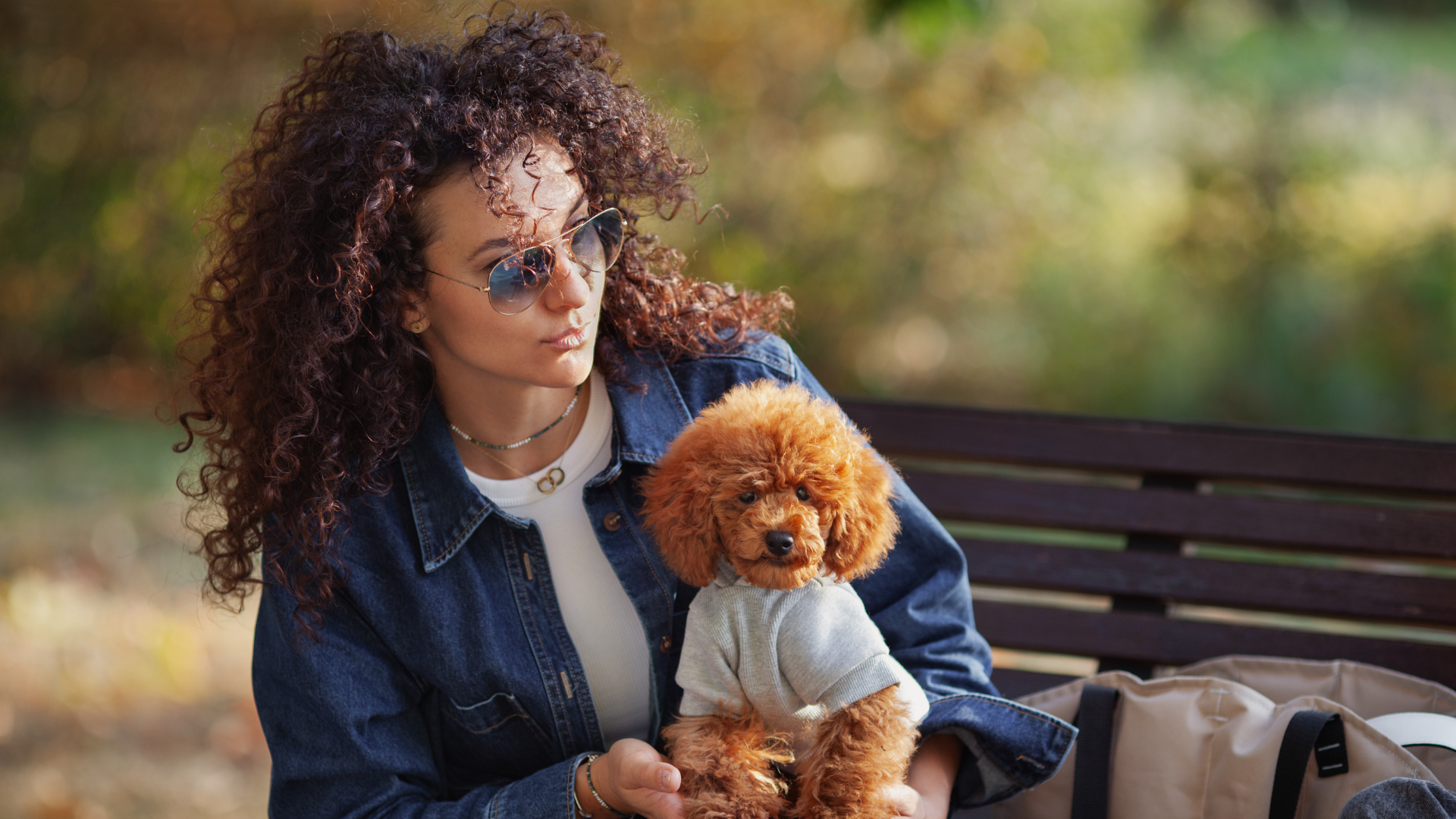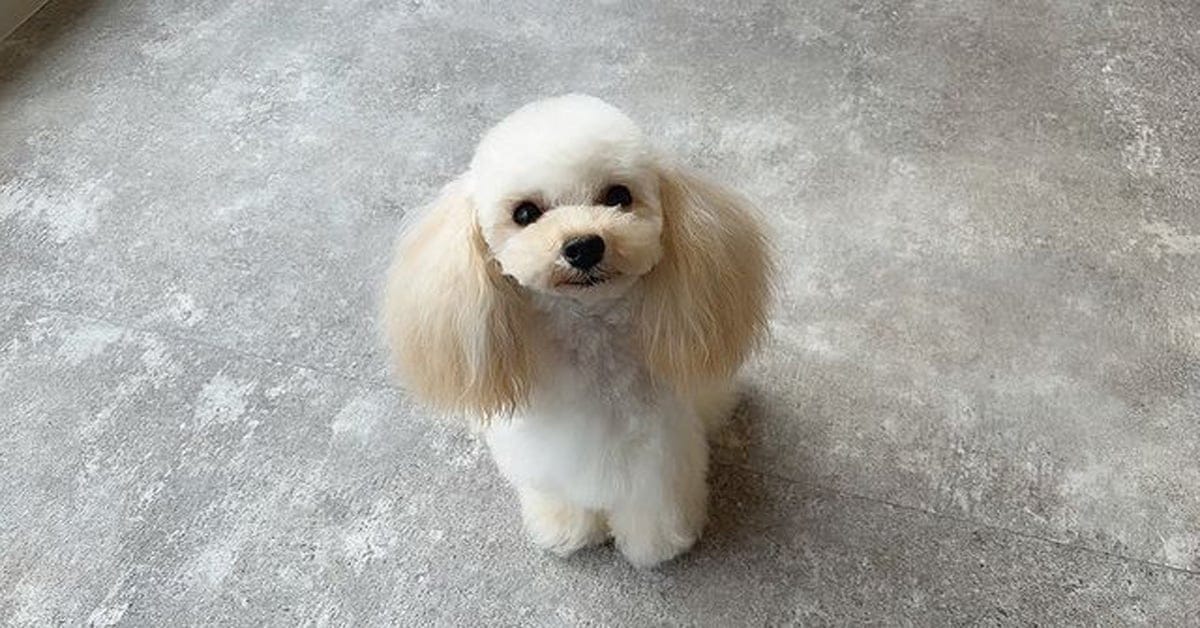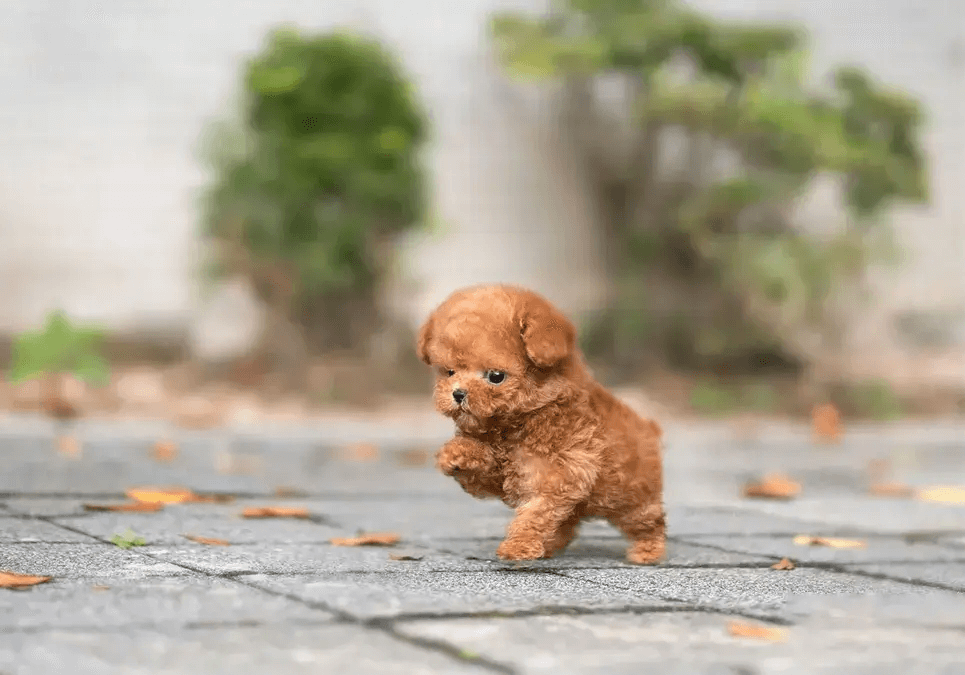Teacup poodles are a popular breed of toy dogs that are highly sought after for their small size, adorable looks, and charming personalities. They are known for being intelligent, affectionate, and loyal pets that make great companions for individuals and families alike. In this article, we will explore the world of teacup poodles and provide readers with an overview of their history, characteristics, and care.

Teacup poodles are a type of poodle that is smaller than the standard and miniature varieties. They typically weigh between 2 and 5 pounds and stand less than 10 inches tall at the shoulder. Despite their small size, they are known for being lively and energetic dogs that love to play and interact with their owners. They are also highly trainable and excel in obedience and agility competitions.
Breed Overview
History
Teacup Poodles are a variation of the standard Poodle breed. The Poodle breed originated in Germany, where it was bred as a water retriever. The Poodle's coat was trimmed to help it swim more efficiently. The breed was later brought to France, where it became popular among the French aristocracy. The smaller versions of the Poodle, including the Teacup Poodle, were bred in the 18th and 19th centuries.
Characteristics
Teacup Poodles are known for their intelligence, loyalty, and affectionate nature. They are also highly trainable and excel in obedience competitions. They are great with children and make excellent family pets. Teacup Poodles are also hypoallergenic, making them a good choice for people with allergies.

Size and Appearance
Teacup Poodles are the smallest size of the Poodle breed, weighing between 2 and 5 pounds and standing less than 9 inches tall. They have a curly, dense coat that can come in a variety of colors, including black, white, brown, silver, and apricot. Their coat requires regular grooming to prevent matting and tangling.
Teacup Poodles have a distinctive appearance, with a long, narrow head and a curly, fluffy coat. They have long, floppy ears and a short, docked tail. They are a small, delicate breed and require careful handling to prevent injury.
Care Requirements
Diet
Teacup poodles require a balanced diet that is rich in protein, vitamins, and minerals. It is important to feed them high-quality dog food that is specifically designed for small breed dogs. Owners should avoid feeding their teacup poodles table scraps or human food as it can cause digestive issues and obesity. It is also important to monitor their food intake as overfeeding can lead to health problems.
Grooming
Teacup poodles have a curly, hypoallergenic coat that requires regular grooming to prevent matting and tangling. Owners should brush their teacup poodles at least once a day and take them to a professional groomer every 4-6 weeks for a trim. It is also important to clean their ears regularly and trim their nails to prevent overgrowth.
Exercise
Teacup poodles are energetic and playful dogs that require daily exercise to maintain their physical and mental health. They enjoy short walks, playtime, and interactive toys. However, owners should be careful not to overexert their teacup poodles as they are prone to injuries due to their small size. Indoor activities such as hide and seek or puzzle toys can also provide mental stimulation for teacup poodles.
Overall, providing proper care for a teacup poodle requires a commitment to their health and well-being. By following a balanced diet, regular grooming, and daily exercise routine, owners can ensure that their teacup poodle lives a happy and healthy life.

Health and Lifespan
Teacup poodles are generally healthy dogs and can live up to 15 years with proper care. However, they are prone to certain health issues that are common in small breeds.
Common Health Issues
Teacup poodles are at risk for dental problems, such as tooth decay and gum disease, due to their small mouths and crowded teeth. They are also prone to hypoglycemia, a condition that causes low blood sugar and can be life-threatening if not treated promptly. Patellar luxation, a condition where the kneecap dislocates, is another common issue in teacup poodles.
Other health concerns include ear infections, allergies, and heart disease. It's important to monitor your teacup poodle's health and schedule regular check-ups with a veterinarian to catch any potential issues early.
Vaccinations and Preventative Care
To keep your teacup poodle healthy, it's important to follow a regular vaccination schedule. This includes vaccinations for distemper, parvovirus, and rabies, among others. Preventative care, such as flea and tick prevention and heartworm medication, can also help keep your teacup poodle healthy.
Regular grooming, including brushing and bathing, can also help prevent skin and coat issues. Additionally, providing a healthy diet and regular exercise can help maintain your teacup poodle's overall health and lifespan.
Training and Behavior
Training Techniques
Teacup Poodles are intelligent and eager to please, making them relatively easy to train. Positive reinforcement techniques such as treats, praise, and playtime work well with this breed. Consistency is key when training a Teacup Poodle, as they can become easily confused if commands are not clear and consistent.
It is important to start training early to prevent any bad habits from forming. Teacup Poodles respond well to clicker training, which uses a clicking sound to mark desired behavior and reward with treats. Crate training can also be effective, as it provides a safe and comfortable space for the dog to rest and reduces the risk of destructive behavior.
Behavioral Traits
Teacup Poodles are known for their lively and affectionate personalities. They are loyal and devoted to their owners, and thrive on attention and affection. However, they can also be sensitive and easily stressed, so it is important to create a calm and stable environment for them.
Teacup Poodles can be prone to separation anxiety, so it is important to gradually introduce them to being alone and provide plenty of mental and physical stimulation to keep them occupied. They also have a tendency to bark excessively, so early training is important to prevent this behavior from becoming a problem.

Socialization
Teacup Poodles are social dogs and enjoy spending time with their owners and other dogs. Socialization is important to prevent shyness or aggression towards other dogs or people. Early socialization with other dogs, people, and different environments can help prevent fearfulness and anxiety later in life.
Teacup Poodles are also well-suited for apartment living, as they do not require a lot of space and are generally quiet indoors. However, they still require daily exercise and mental stimulation to prevent boredom and destructive behavior. A daily walk or playtime in the yard can provide the necessary exercise and stimulation for a Teacup Poodle.
Living With a Teacup Poodle
Teacup poodles are adorable and affectionate dogs that make great pets for those who have the time and patience to care for them properly. In this section, we will discuss the housing needs of teacup poodles, as well as their compatibility with children and other pets.
Housing Needs
Teacup poodles are small dogs, which means they don't require a lot of space to live comfortably. However, they do need a warm and cozy place to sleep, away from drafts and cold temperatures. A soft, comfortable bed or blanket is ideal for teacup poodles.
Teacup poodles also need regular exercise to stay healthy and happy. While they don't need a lot of space to run around, they do need daily walks and playtime to burn off excess energy. A fenced yard or a nearby park is a great place for a teacup poodle to get some exercise.
Compatibility with Children and Pets
Teacup poodles are generally good with children and other pets, but they do require proper socialization. It's important to introduce a teacup poodle to children and other pets at a young age, so they learn to interact appropriately.
Teacup poodles are also sensitive dogs, so they may not be suitable for households with very young children or rowdy pets. They prefer calm and quiet environments, so it's important to provide them with a peaceful living space.
In summary, teacup poodles make great pets for those who have the time and patience to care for them properly. They don't require a lot of space, but they do need regular exercise and a warm, cozy place to sleep. With proper socialization, they can get along well with children and other pets.

Adoption and Purchase
Finding a Breeder
Teacup poodles are a popular breed, and as such, there are many breeders who specialize in them. It is important to do your research and find a reputable breeder who has a good track record of producing healthy and well-socialized puppies. One way to find a breeder is to ask for recommendations from other teacup poodle owners or from your local veterinarian.
When looking for a breeder, it is important to ask about the health and temperament of their dogs. A good breeder will be happy to answer any questions you have and provide you with documentation of health testing and vaccinations.
Adoption Options
If you are interested in adopting a teacup poodle, there are several options available to you. One option is to check with local animal shelters or rescue organizations. While teacup poodles may not be as common in shelters as larger breeds, it is still possible to find one in need of a home.
Another option is to check with breed-specific rescue organizations. These organizations specialize in rescuing and rehoming specific breeds and may have teacup poodles available for adoption.
It is important to note that adopting a dog, whether from a shelter or rescue organization, can be a rewarding experience, but it is important to be prepared for the responsibilities that come with owning a pet. It is important to ensure that you have the time, resources, and commitment to provide a loving and stable home for your new companion.
Fun Facts
Teacup poodles, also known as toy poodles, are a popular breed of dog that are loved for their small size and adorable appearance. Here are some fun facts about these furry friends:
- Teacup poodles are the smallest of the three sizes of poodles, which include standard and miniature.
- Despite their small size, teacup poodles are known for their intelligence and are often used as therapy dogs.
- Teacup poodles come in a variety of colors, including white, black, apricot, and silver.
- These dogs are hypoallergenic, making them a great choice for people with allergies.
- Teacup poodles are known for their long lifespan, with some living up to 20 years.
- Due to their small size, teacup poodles require minimal exercise and can be easily trained to use a litter box.
- These dogs are often used in dog shows and competitions, where they are judged on their appearance, behavior, and obedience.
- Teacup poodles are popular among celebrities, with famous owners including Paris Hilton and Ellen DeGeneres.
Overall, teacup poodles are a beloved breed of dog that make great companions for people of all ages.
Conclusion
In conclusion, teacup poodles are charming, intelligent, and affectionate companions that fit well into a variety of living situations. Their small size, hypoallergenic coats, and lively personalities make them ideal pets for individuals and families alike. Proper care, including a balanced diet, regular grooming, and daily exercise, ensures these tiny dogs thrive.
While they are generally healthy, it's important to monitor for common health issues and provide regular veterinary care. Whether adopting or purchasing from a reputable breeder, teacup poodles offer years of joy and companionship. Their unique characteristics and loyal nature make them a beloved choice for dog lovers everywhere.




